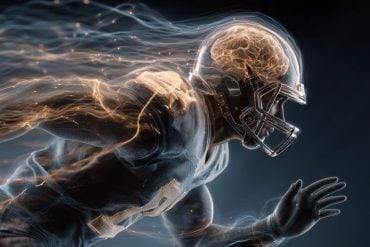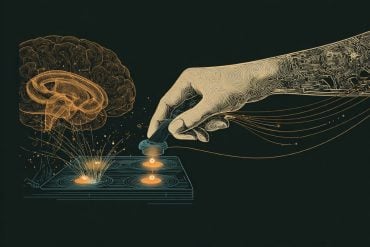Summary: Out-of-body experiences (OBEs) are often dismissed as hallucinations or brain malfunctions, but a new study gives voice to those who have lived them. Through in-depth interviews, participants described their OBEs as vivid, often peaceful, and undeniably real, sometimes more real than waking life.
While explanations varied, many leaned toward metaphysical interpretations, suggesting expanded or non-local consciousness. These findings encourage more open, inclusive scientific dialogue about consciousness and challenge narrow neurological explanations.
Key Facts:
- Perceived Reality: All participants described their OBEs as authentic and distinct from dreams or hallucinations.
- Interpretations Vary: Some cited physiological causes, but many used metaphysical concepts like “universal consciousness” and “other planes.”
- Potential Impact: OBEs were often transformative, reducing fear of death and prompting shifts in worldview for frequent experiences.
Source: Neuroscience News
Out-of-body experiences (OBEs), long shrouded in mystery and debate, are often dismissed as hallucinations or neurological glitches. Yet, for those who live them, OBEs can be vivid, meaningful, and transformative.
A new qualitative study shifts the focus from theory to lived experience, offering a rare window into how individuals interpret these extraordinary events.
The research suggests that OBEs may not easily fit within traditional scientific frameworks and invites fresh consideration of the possibility of non-local consciousness.

Involving in-depth interviews with ten participants who had experienced OBEs outside of near-death contexts, the study aimed to explore how individuals themselves make sense of these moments.
Researchers intentionally excluded individuals with mental or neurological disorders to focus on healthy participants who encountered OBEs spontaneously or through meditative or calm states.
Across the board, participants perceived their experiences as real, often more real than ordinary waking life.
Descriptions varied widely, from floating near the ceiling to traveling across cities or even to otherworldly realms.
Emotions ranged from peacefulness and euphoria to fear, particularly in moments where return to the body felt uncertain.
Importantly, explanations for these phenomena were far from uniform. While four participants could not offer any explanation at all, one linked their experience to physiological causes (notably, ketamine use).
The remaining five leaned toward metaphysical interpretations, using terms like “universal consciousness,” “planes,” and “dimensions” to describe what they had encountered.
These interpretations align with emerging ideas of non-local consciousness, which propose that awareness may extend beyond the confines of the brain.
Predisposing factors varied as well. Some participants believed their openness to spiritual experiences or lucid dreaming habits made them more likely to experience OBEs. Others reported no clear predisposing traits.
Precipitating factors included calm, meditative states, as well as more unexpected triggers such as orgasm and drug use.
While some participants found the experience frightening, most described it positively and expressed a desire to repeat it.
For those who had experienced multiple OBEs, a pattern emerged: repeated experiences were often more complex and seemed to foster personal growth.
Some reported that OBEs reduced their fear of death and gave them a more relative view of life’s worries.
Despite the study’s small sample size and the subjective nature of the data, the findings challenge purely reductionist views of OBEs.
Most participants rejected the notion that their experiences were hallucinations or signs of dysfunction.
Instead, many viewed them as profound events that expanded their understanding of reality and self.
The researchers emphasize that while OBEs remain difficult to study scientifically, dismissing them outright risks ignoring important aspects of human consciousness.
They call for future research to continue prioritizing the voices of experiencers themselves while also integrating physiological, psychological, and non-local theories in a more holistic way.
Ultimately, OBEs remain enigmatic. But this study suggests they may hold valuable clues — not just about individual perception, but about the very nature of consciousness itself.
About this Consciousness research news
Author: Neuroscience News Communications
Source: Neuroscience News
Contact: Neuroscience News Communications – Neuroscience News
Image: The image is credited to Neuroscience News
Original Research: Open access.
“Out-of-body experiences: interpretations through the eyes of those who live them” by Jenny Moix et al. Frontiers in Psychology
Abstract
Out-of-body experiences: interpretations through the eyes of those who live them
Introduction: Out-of-body experiences (OBEs) are primarily characterized by the sensation of the self being located outside one’s physical body.
The complexity of this phenomenon has led researchers to propose various theories to explain it, including physiological, psychological, and non-local consciousness theories.
The objective of this study is to directly explore the interpretations of individuals who have experienced this phenomenon firsthand.
Method: The study employed a qualitative descriptive design with a phenomenological interpretive analysis approach, using in-depth semi-structured interviews.
The sample comprised 10 participants without mental disorders or neurological and/or vestibular pathologies. The factors studied were predisposing, precipitating, phenomenological, consequential, and interpretive.
Results: All participants agreed that their experience was not only real but described it as more vivid and authentic than everyday reality. Four participants had no explanation for their experience, while one interpreted it in physiological terms.
The remaining five explained their experiences using terms like “other planes or dimensions” and “universal consciousness,” aligning with some authors who use concepts such as “non-local” or “expanded consciousness” to address OBEs.
Discussion: The findings suggest that, given that most participants refer to explanations that go beyond what is commonly understood as consciousness, theories of non-local consciousness could be enriched by incorporating these experiential perspectives.







